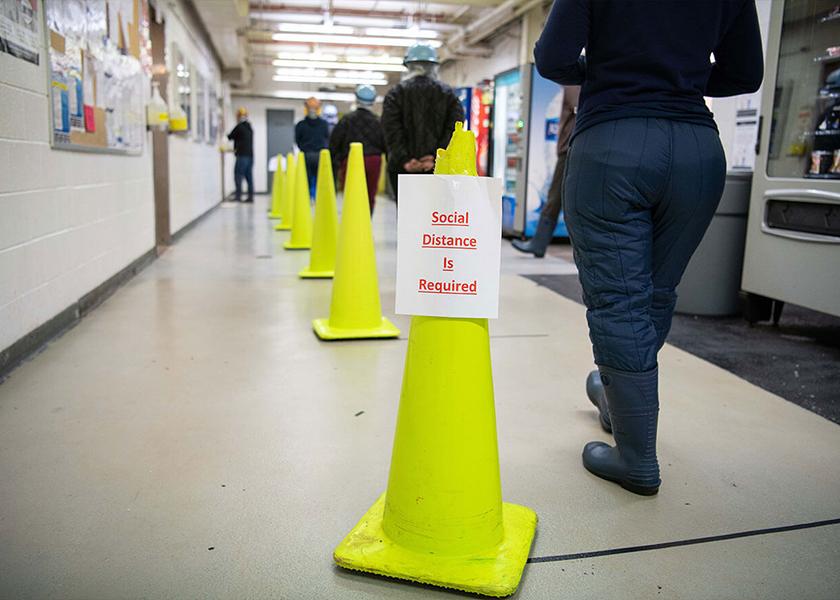Lawmakers Reject Mandated Virus Protections for Nebraska Meatpacking Workers

A Nebraska bill (LB241) has been delayed that would have extended COVID-19 protections for meatpacking workers for another year.
Lawmakers voted 25-18 on May 18 to delay the bill through the end of the year, according to a report from WOWT-TV in Omaha, Neb. Gov. Pete Ricketts expressed concerns about the bill’s mandates. Opponents argued packing plants have taken precautions and the pandemic is nearly over. Supporters claim it’s critical to keep plant employees safe.
According to Sen. Julie Slama of Peru, the bill establishes an unnecessary set of requirements for meatpacking plants and will hinder the industry, WOWT-TV reports.
Sen. Joni Albrecht of Thurston, whose district includes the Tyson plant in Dakota City, told The Lincoln Journal Star that it was in the companies’ interests to keep workers healthy and safe. She shared a letter from Tyson outlining the steps the company had taken to protect employees from the spread of the virus.
The bill’s author, Sen. Tony Vargas of South Omaha, said he’s concerned that this high-risk population could face COVID variants, claiming all it would do is put up guardrails. He said he doesn’t understand the opposition, since colleagues have been putting guardrails into place on issues with less data than the risk facing meatpacking workers, WOWT-TV reports.
The legislation would have mandated a reconfiguration of lunchrooms, break rooms and locker rooms to allow six feet of social distancing wherever possible. Processors would also have been required to provide face masks, sanitation stations and testing.
Read more:
Tyson Foods Partners with LULAC to Encourage Vaccination
Smithfield Foods Prepares for COVID-19 Vaccine Distribution to U.S. Employees
Smithfield Urges Prioritization of COVID-19 Vaccine to Ag Workers







